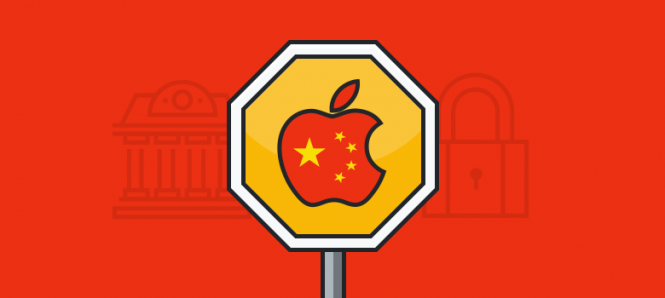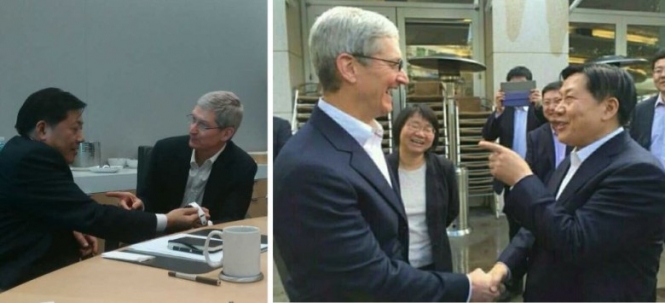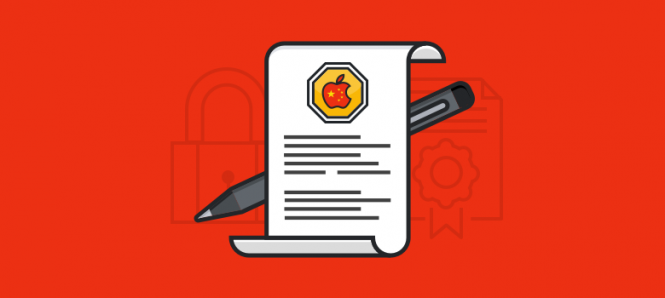About those 674 apps that Apple censored in China
Apple’s written response to questions posed by Senators Leahy and Cruz marks the first time that Apple has been transparent regarding their censorship practices in China. When Apple started to comply with Chinese government censorship demands, they signalled to the world that freedom of speech is not one of the company’s values. Apple argues otherwise, frequently repeating that the company must adhere to local laws in all markets where they operate. With this response, Apple both simplifies what is a complicated matter and sets a dangerous precedent.
In their letter, Apple again repeats the mantra that “engagement will help the opening up of China”. How long has Apple been operating in China? Since they formally entered the market in 2008, Apple has been using this same statement and the situation has only gotten worse. Can Apple honestly say that, when it comes to freedom of access to information, that things have improved during their decade of operations in China?
[Apple has also long stated that they wish to improve the working conditions of those in China who manufacture their products. In 2011, it was noted that “Apple's success has been built literally on the backs of Chinese workers, many of them children…”. Apple is still looking into these improvements.]
Apple’s letter makes it clear that censorship became much harder to defeat in 2017. Apple removed 674 VPN apps from the China App Store this year alone. Kudos to Apple for providing transparency on VPN censorship in China and kudos to the two senators whose letter forced this admission. But Apple is providing no transparency on the other apps that the company is censoring in China. Sometime in October, 2017, Apple removed Skype from the China App Store. In late 2016, Apple removed the Chinese New York Times from the App Store.

Apple argues that they are only following the letter of the law while operating in China. “Adhering to local laws” does not equal a values-based decision. On the contrary, it is the default decision of a company without values. Turned on it’s head, Apple could equally justify its lack of censorship in the US market by blaming US laws that protect freedom of speech. The degree of freedom of speech that Apple stands for is the exact legal minimum imposed on it by laws around the world. The company itself does nothing to defend freedom of speech, or speak up when these freedoms are violated.
Because of the stature of Apple (economically, not morally, nor ethically), the decisions that Tim Cook makes affect many other companies. If Apple agrees to censorship, then the pressure builds on other phone manufacturers to agree to censor. But the Chinese authorities then use Apple as an example for other companies in other sectors. Foreign and domestic news media organizations, academia, content-driven websites, educational institutions and book publishers are all told to follow Apple’s example, leaving them with little choice but to complicity submit to self-censorship.
If all companies followed Apple’s example of taking censorship orders from Beijing, any attempts by Chinese to bypass this censorship would be made impossible. This is because information that is censored inside the Great Firewall of China survives outside the wall thanks to the support, or at least tolerance, of internet companies outside of China. If these companies all acted like Apple, there would be no more circumvention, no more uncensored Chinese information, anywhere on the global internet.
Take greatfire.org as an example. The site is blocked by the great firewall (GFW). The only way to access this content inside the GFW is to use a circumvention tool. These tools - whether commercial or free - are themselves operated by organizations that also have to balance their need to comply with laws around the world and their own sets of values. The difference is that, so far, they come to a different conclusion than Apple does. They decide that, even though a user is located in mainland China, and even though that user wants to access content which is blocked in China, the user should be allowed to do so, so they help that user to get access. Their belief in the value of freedom of access to information overrides their need to adhere to censorship laws around the world. This is what believing in a value means.
Circumvention tools themselves depend on a range of other internet service operators including web hosting providers, content delivery networks and domain registrars. If these companies all decided, like Apple, to comply with Chinese censorship demands, operating a circumvention tool that works in China would be impossible.
In other words, if other companies follow Apple’s example, circumventing censorship in mainland China becomes an impossibility. But it will not stop there. The Chinese Communist Party does not aim to just control access inside the borders of mainland China. Apple has in fact already helped the authorities expand control of its citizens to a worldwide level. With the way that Apple’s system is designed, if a user is registered as a Chinese user with a Chinese credit card, then when that user travels outside of China, they are still subject to the same information controls. Even though that user may have travelled to, say, the US, that user will still not be able to install a VPN app on their phone.
In principle, this is no different than Apple restricting Chinese users from accessing websites blocked in China when travelling. If Apple does indeed start doing this, we should be outraged, but not surprised, as the moral boundary has already been crossed.
If other companies implement the same policies, it could mean, for example, that a Chinese person currently in the US would not be able to watch a movie on Netflix, if that movie is banned in China. It could mean that a Chinese person would not be able to buy a book on Amazon, if that book were banned in China. It could mean that Facebook would implement keyword-based censorship for Chinese users, when they are accessing Facebook while physically in the US. In short, it could mean that while Chinese people could travel outside of China, the complicit cooperation of companies around the world with the Chinese authorities would ensure that these globetrotters would never escape the censorship controls imposed by their government.
It is also important to note that by the letter of the law, Apple is in fact helping to break the laws of China. Article 35 of The Constitution of The People's Republic of China cleary states that "citizens of the People's Republic of China enjoy freedom of speech, of the press, of assembly, of association, of procession and of demonstration".

Apple is not adhering to local laws when it removes apps from the China App Store. They are in essence just greasing the palms of the authorities with what they believe is a goodwill gesture - 674 times! What Apple is coming to understand with each passing day is that once the palms are greased, there is a never-ending line of outstretched hands with dry, flaky skin, all waiting for their handout. The only thing that will prevent Apple from complicity meeting every demand of every Chinese official is the Foreign Corrupt Practices Act.
Today Apple is removing VPN apps from the App Store. Tomorrow Apple will be ensuring that an umbrella of censorship hangs over every Chinese, in any part of world. All in the name of “adhering to local laws wherever they do business”.
The Economist recently declared China’s president Xi Jinping “the world’s most powerful leader”. The Chinese Communist Party is using its growing power to change the state of the internet and freedom of speech on a global level. This demands that we all ask ourselves what we believe in. The future of freedom of speech requires people and organizations braver and more sincere than Tim Cook and Apple.
Based on Apple’s response, we have some additional questions for Apple. We also note that David Kaye, the United Nations’ Special Rapporteur on the promotion and protection of the right to freedom of opinion and expression, also posed questions for Apple in August, 2017. David’s questions are incorporated and noted in the list of questions below along with unanswered questions from the original letter to Apple. We have also posed new questions based on Apple’s latest response.
1. Which trade associations did Apple join in providing comments to the Chinese authorities on the China Cybersecurity Law? What were Apple’s contributions to these joint efforts? (It is also worth reading David Kaye’s formal comments regarding the Cybersecurity Law.)
2. Which trade associations did Apple join in providing comments to the Chinese authorities on the Notice on Regulating Business Behavior in the Cloud Services Market? What were Apple’s contributions to these joint efforts? What concerns did Apple share about the provisions covering VPN services? What concerns did Apple share about the adverse impact these provisions would have on the free flow of data in China?
3. Of the 674 VPN apps that Apple removed from the China App Store, were all 674 VPNs listed on the order from the Chinese authorities? If not, did the authorities ask for more or less VPNs to be removed from the App Store? If more or less, what was Apple’s rationale for removing / not removing the additional VPNs from the China App Store?
4. [From David Kaye]: Did Apple consider options other than application removal to protect the rights of Chinese consumers? For example, did Apple seek to restrict the number or types of Apps that were taken down?
5. Apple removed 674 VPN apps from the China App Store this year. Was there one request or multiple requests from the Chinese authorities? In which month/months was/were the request/requests received?
6. [From David Kaye]: In making legal assessments, if any, did Apple take into account China’s obligations under international human rights law? In making your assessment about proceeding with the takedown from the App Store, did Apple take into account international instruments such as the UN Guiding Principles on Business and Human Rights or the Global Network Initiative’s Principles on Freedom of Expression?
7. [From David Kaye]: Did Apple provide Chinese customers with information about what Apps were taken down, and the reasons for such removals?
8. While Apple states that it has made its views on VPN apps clear to the Chinese authorities, has Apple made any formal request with the Chinese authorities to reintroduce VPN apps to the China App Store?
9. Can Apple confirm that the hundreds of VPN apps that remain in the China App Store all meet with the approval of the Chinese authorities?
10. How many other apps has Apple removed from the China App Store since the China App Store first opened? How many requests has Apple received from the Chinese authorities to remove apps? How many times has Apple refused to remove apps from the China App Store? What number of apps were protected by these refusals?
11. [From David Kaye]: How does Apple make such decisions about whether to restrict App Store content in the face of government requests such as the instant one? Apart from your General Counsel, which other divisions participate in such decision-making?

